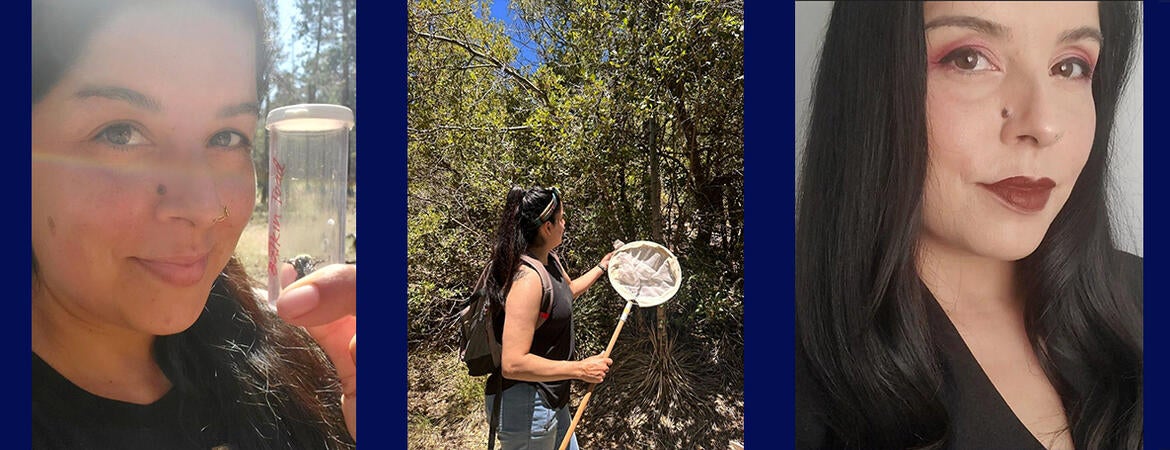
Melissa Arellano, her first name translating to "honey bee" in Greek, signifies the impact of research experiences on students' academic paths. As a 4th-year Environmental Science major that transferred from City College of San Francisco, Melissa found her passion for bees through the Summer RISE program at the University of California, Riverside.
Melissa is in Dr. Hollis Woodard's lab studying various species of bumblebees, from their biology to behavior. The lab primarily focuses on Bombus impatiens, a hardy species Melissa referred to as the 'beagle of bee research' due to its robust performance as a lab-researched species.
Melissa's research is assessing wild bumblebees at two distinct national parks, comparing populations from burned sites versus non-burned ones. Her research examines factors like plant life and competition with honey bees, and incorporates measurements of the bees' size, including their heads, wings, and weight. This project aims to better understand wild bumblebees in response to naturally-occurring landscape changes due to fire versus unburned regions.
This work took Melissa to Yosemite and Sequoia National Parks over the summer, where she hiked to recent wildfire locations to collect bee samples. Despite the strenuous nature of this task, she considers it a highlight of her research experience.
Interestingly, before joining the Summer RISE program, Melissa never saw herself as a researcher. She imagined a straightforward path - completing her bachelor's degree and stepping into industry work. It was RISE that opened her eyes to the potential of research and its real-world implications. She credits RISE with giving her a chance to work with bees, an experience she hoped for but didn't expect.
Moving to UCR brought challenges for Melissa. She moved from San Francisco with only her partner, without any family or friends nearby. The winter transfer was financially taxing, with Melissa struggling to balance her studies with bills. The RISE program offered her the chance to focus entirely on her research and academic work, a luxury she might not have otherwise had.
Looking ahead, Melissa's experience with RISE and bee research has made her reconsider her long-term goals. Although she had never previously considered a Ph.D. or graduate school, her friends and principal investigator have sparked her interest in these possibilities. Melissa is now contemplating using her environmental science background and bee research to investigate agricultural applications of native bee species.
As for her advice to future RISE students, Melissa stresses the importance of seeking a lab that aligns with their interests even before applying to the program. She encourages them to pursue the type of research they want to do and to find a lab with a supportive culture to thrive. This proactive approach, she believes, will help them fully utilize and maximize the benefits of the RISE program.
Learn more about the RISE Program